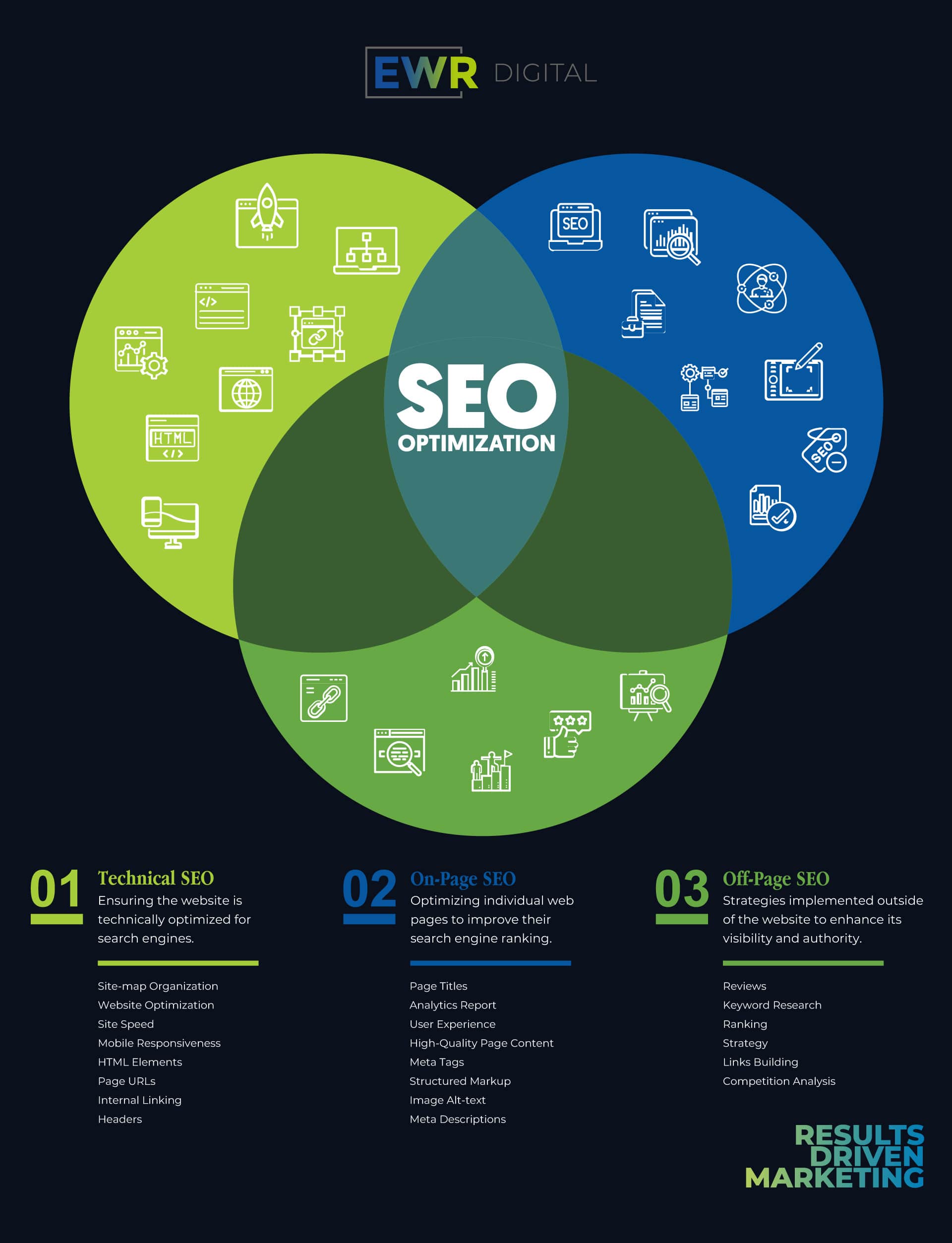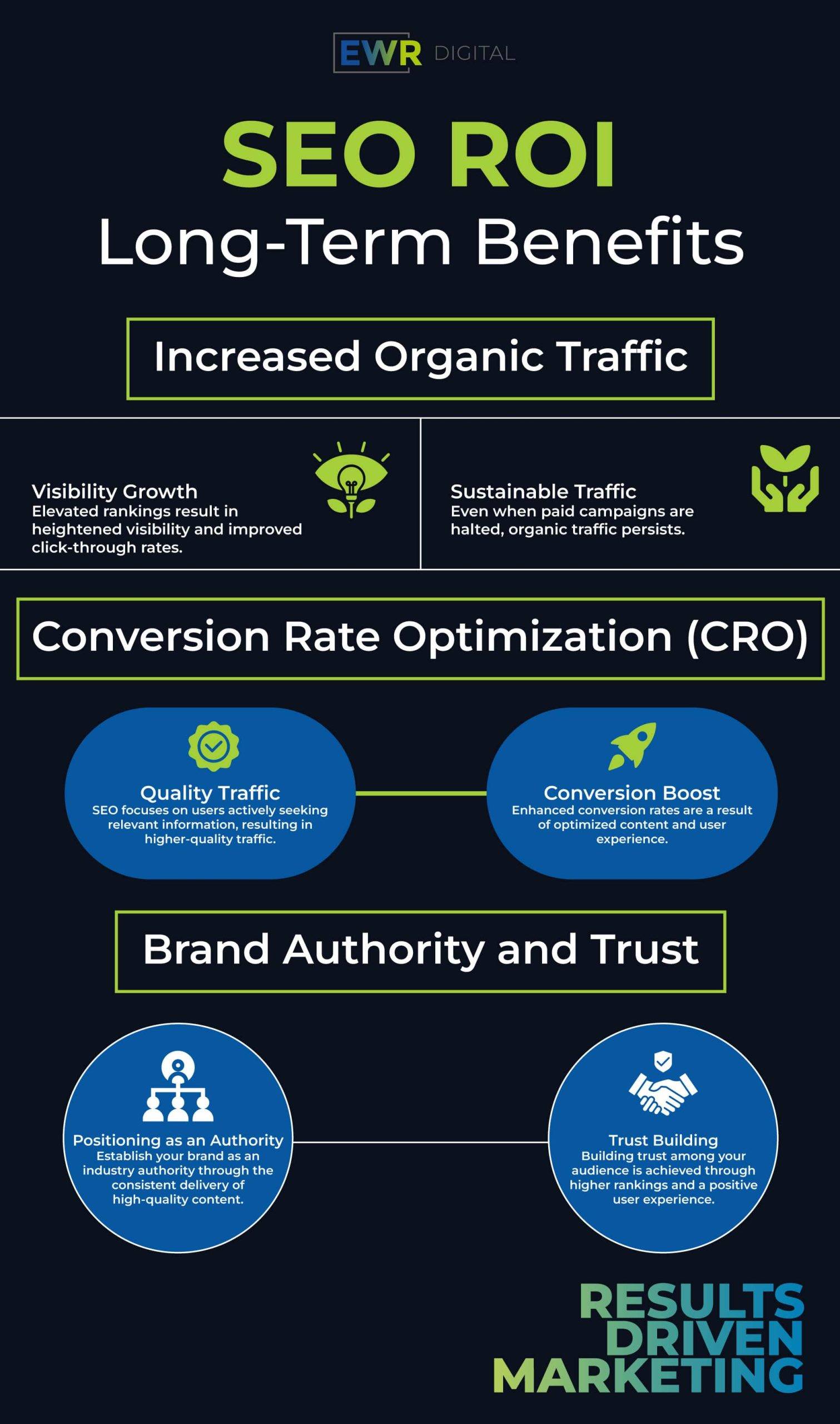
The SEO industry is worth $80 billion or more, and many people see it as a cornerstone of marketing in the digital age. Yet, SEO is often overlooked by business owners. Even CMOs aren’t always convinced the service is worth the money. You’ve probably heard the term before, but you may not even know what SEO is. What does SEO stand for, and why is it something you need to invest in?
This guide will take you through the basics of SEO, including what the acronym stands for. We’ll also go through the benefits of good SEO, and how an SEO company could boost your marketing efforts.
What Does SEO Stand for?
Before diving into SEO mechanics, it helps to understand what people mean when they talk about it. So, what does SEO stand for in marketing?
It’s an acronym, which stands for search engine optimization.
If you asked, “What do you mean by search engine optimization?” you’re not alone. SEO refers to a wide range of techniques you can use to make your website or blog more discoverable for search engines.
SEO, which stands for Search Engine Optimization, is the practice of improving a website’s visibility and ranking in search engine results pages. In today’s digital age, where online presence plays a crucial role in business success, SEO has become an essential aspect of any website or online marketing strategy.
The primary goal of SEO is to attract organic (non-paid) traffic to a website by optimizing various factors that search engines consider when ranking web pages. These factors include relevant content, keyword usage, website structure, backlinks, and user experience. By aligning a website with search engine algorithms, SEO helps improve its chances of appearing higher in search results when users search for relevant topics or keywords.
Why do You Need SEO?
Your next question is likely about why SEO matters for your business. The easy answer is it makes it easier for your customers to find you.
Consider that 93 percent of web sessions start with a search. The first stop for most people is a search engine like Google or Bing.
Unless people are already aware of your website, they’re not typing your URL into their address bar. In fact, most of your would-be customers may not even be aware your business exists.
For example, suppose you’re looking for someone to pave your office building’s parking lot or your driveway at home. Unless you know of a company that paves driveways, you’re going to head over to Google.
Once there, you’ll search “driveway paving companies near me” or something similar. Google then brings up a list of different companies that pave driveways in your area.
Even if you know the name of the company you want to hire, you’ll probably search for them.
The same thing happens when you’re on vacation and looking for a great pizza place to grab a bite to eat or searching for new running shoes.

How Does Google Rank Pages?
It’s great that many people use Google and other search engines to discover new businesses. However, it still doesn’t quite explain why you need SEO for your business.
The answer lies in how Google ranks pages for the results page. It’s important to remember that Google uses an algorithm to rank pages. There isn’t someone sitting at a desk, deciding which pages are the “best” results or “best matches.”
It’s all robots. So, how does ranking work? Essentially, Google has robots called web crawlers, which “crawl” websites.
These crawlers visit a site like yours and gather information on it. They analyze the page based on any number of different factors.
When someone searches on Google, the search engine uses it to decide which pages “match” the user’s query. This ranking formula creates the results page.
SEO is the process where you optimize a site so it ranks higher. By optimizing your website, you can push your page higher in the search results. Good SEO also makes it easier for Google’s web crawlers to find and index your page.
Knowing that there are billions of websites out there, SEO is important. If your site isn’t optimized, it’s getting buried.
Why Play the Ranking Game?
What does it matter if your site isn’t in the top spot in the Google search results? It’s a fair question.
The answer lies in user behavior. Most people click on one of the top three search results. If your website isn’t coming up in the top three, it’s pretty much invisible to users.
Spots 4 through 10 get a very small percentage of user clicks. If you’re not in the top 10, your site might as well not exist for most users. Only a few people click through to the second page of results, so they rarely see a site ranked #11 or beyond.
If you want people to discover your site, then you need to rank high enough to hit the first page of results. That’s where SEO comes in.
SEO, as discussed, pushes your website higher in the search rankings. This increases the visibility of your website, which means more people will see it. More visibility means more web traffic, which means more awareness of your company.
More brand visibility and awareness usually means more leads. That, in turn, usually translates into more sales.
That’s why SEO is so vital to any digital marketing effort.
Delivering a Better Web Experience
Now that you can see why you need SEO for your website, you’re likely wondering how to do it. There are two important points to remember:
- SEO is about writing for robots
- SEO is about writing for humans
These might seem contradictory at first. However, it makes sense when you think about how Google’s algorithm works.
Most SEO techniques take into account Google’s ranking factors. Good SEO works to please the web crawlers, making it easier for them to digest and parse web pages. Good SEO also makes it easier for web crawlers to find your page in the first place, through linking.
Simultaneously, Google’s algorithm is designed to deliver a good experience to its search users. Google wants to provide the best results when someone searches for “pizza near me” or “driveway paving companies in Phoenix, AZ.”
That’s why Google’s ranking factors are based on user preferences. Take website speed as an example. Google ranks pages higher if they load in under two seconds.
Why two seconds? That’s how fast users want pages to load. If a website takes three seconds or longer to load, people are more likely to navigate away from the page.
In some ways, then, SEO tactics deliver a better web experience for your human visitors too.
What Ranking Factors Matter?
It’s no secret that Google uses over 200 factors to determine page ranks. The exact formula isn’t known, but some elements seem to matter more than others.
SEO specialists usually try to hit some major categories, which include:
- Technical aspects
- Content factors
- Social proof
Each of these broad categories includes many smaller “activities” you can undertake to help your page ranking. Technical SEO, for example, includes website speed. It also looks at image optimization, website design, and the use of Schema markup.
Content factors include keywords and phrases, as well as readability. This category also considers metadata, such as titles and meta-descriptions. Content length and the frequency of posting also play a role.
Social proof is probably the most difficult category to build up because it relies a bit on other people. It considers factors like backlinks and online reviews. It can also include social media, although Google puts less emphasis on social than other search engines.
Looking at any or all these factors can help you increase your website’s visibility and SERP ranking. They also improve the website experience for your human visitors. Longer content, for example, increases the chance that someone will find the answers they want.

What Are the Benefits of SEO?
Now that you understand the inner mechanics of SEO, you’re probably wondering what the benefits are. Sure, good SEO gets you a higher ranking, but what does that actually do for your business?
As discussed, the number one benefit of good SEO is increased visibility. If your site is ranking high for certain search terms, more people will see it. In turn, this improves brand awareness.
It also drives web traffic. More people will visit your page when it turns up in the top spot or the number three spot than if you’re on page two.
This also has the benefit of increasing trust. As someone sees your page coming up over and over again, they’re likely to think you have some expertise.
They may read one blog by you, then watch a video. If you answer their questions, they’re likely to think of you when they need answers on a certain subject.
If they see your website come up in the search results, they’re more likely to give you their click. They already trust you’ll be able to answer their questions.
Good SEO also delivers a better web experience for the users who do give you their click. This also improves their trust in your brand. A well-designed website with simple navigation and a short loading time makes the user more likely to return.
By contrast, a poorly designed page usually has poor SEO as well. A clunky, cluttered design, poor navigation, and slow load times translate into a bad user experience. Users are unlikely to return to sites like these.
SEO does consider factors like design, load time, and navigation. Focusing on SEO can help you solve other problems with your website experience.
The Secret to Digital Marketing Success
Good SEO isn’t anything flashy, which is why it sometimes gets overlooked by marketers. Given everything it can do for your business, it’s easy to see why it’s a cornerstone of good digital marketing.
Increased brand awareness and visibility usually increase web traffic, as well. People may be more likely to click on ads they see because they’re already familiar with your brand.
Trust, and a good website experience keeps your leads coming back, especially as they move through their buying journey. Great content is another magnet to drive traffic and build trust. SEO helps people discover that content.
In this way, SEO supports all other digital marketing initiatives you’re undertaking. You can have the best content, but it doesn’t matter if no one can find it. Building brand visibility and awareness can improve your PPC and social media campaigns.
In turn, SEO also helps you generate more leads and, eventually, close more deals. An investment in SEO is an investment in your bottom line!
Should You DIY SEO?
Many marketers believe they can handle search engine optimization on their own. SEO can be done in-house, but you should only try this if you have the expertise.
Why? SEO is an ongoing effort. It’s not something you do once and then forget about it.
It’s also important to remember that Google is always updating its algorithm. The SEO tactics that work are ever-changing, which means you need to stay on top of trends. You’ll need to tweak and change your SEO strategy regularly.
This can place enormous demands on an in-house team. You may not have the resources to update SEO all the time.
The other factor is that it’s easy to make mistakes with SEO. If you lack the expertise, your best bet is to partner with a top SEO company.
What does an SEO company do? Their team of experts works have proven work with you to develop a strategy for your business, then put it in place.
Finally, they monitor and update your SEO. They respond to changes in Google’s algorithm. In short, they make sure your SEO is always turning in peak performances.
Add SEO to Your Marketing Mix
You asked, “What does SEO stand for, and why is it important?” With some luck, this guide has given you insight into what SEO is, how it works, and why it’s so important for your business. Ready to adopt a better SEO strategy for your business? It’s time to get in touch with an expert team, like EWR Digital.

